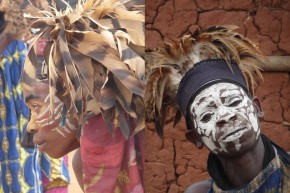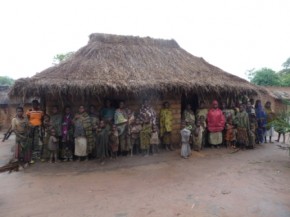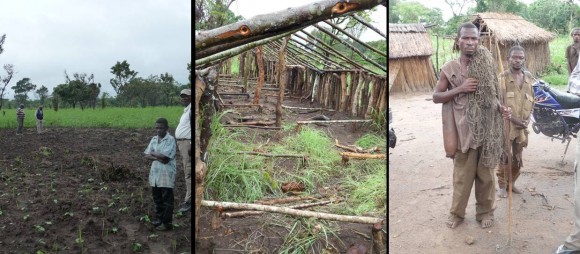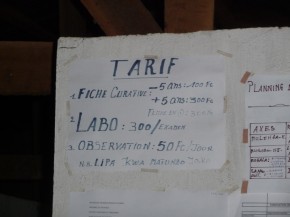The Congolese really love to dance. If you haven’t had the good fortune to hear Congolese music or see some top notch DRC dancing, the mighty Papa Wemba is a good place to start.
A few weeks ago, before the current crisis in DR Congo, I found myself seeing Congolese dance of a very different kind. In the district of Tanganyika, which borders the lake of the same name, I saw a troupe of dancers in a BaTwa (known pejoratively as pygmy) village putting on an impressive display of traditional dress and dance. But their purpose was not only to entertain: these dancers were sharing messages about HIV and AIDS, sexually transmitted infections (STIs) and basic hygiene. As people around the globe marked World AIDS Day last Saturday, it was a reminder of the importance of communicating how to avoid this devastating disease. Last year there were 2.5 million people newly infected with HIV, though worldwide rates are declining. In a place with limited access to TV, radio and the internet, the arts are often one of the only ways for remote communities to effectively develop their understanding their understanding of how to prevent HIV.

Although it may seem a leap (should that be a sauté?) from dance to road building, I went to see the dancers as part of a visit to the UK aid and World Bank supported programme ProRoutes.
ProRoutes supports the rebuilding of the national priority transport network, rehabilitating over 2,000 kilometres of roads.
Since roads can have significant positive and negative environmental and social impacts, the programme also includes an important element to manage these risks and opportunities.

More specifically, the World Bank’s policy is that, wherever a project takes place in an area where indigenous people live, the project must also have an indigenous people’s development plan. Here in Tanganyika, there is a significant BaTwa population. Many BaTwa communities are nomadic or semi-nomadic. This – and prejudice against the BaTwa – has led to a lack of land rights and a lack of agricultural investment. So we are supporting a range of development activities among BaTwa communities.
The activities that British and World Bank aid is supporting include helping villages to set up committees to identify and advocate for their communities’ needs, securing land rights for BaTwa communities, supporting agricultural investment to provide both food and commercial opportunities, and increasing BaTwa people’s willingness and ability to use health and education services.

In the village of Lukombe, a goat pen is being built as one of the community’s development priorities. Goats provide milk, food, and a significant source of income. The community has recently been given ownership of a new field where manioc and other crops are being grown.

The income from these new agricultural ventures should assist villagers to be able to afford school fees and health care. Although a lab test costs only US$0.30, this has until now been unaffordable for many BaTwa villagers.
And, it involves helping communities develop their awareness of the risks of HIV and AIDS, STIs and poor hygiene. When you know that every minute a young woman is newly infected with HIV, you realise the importance of prevention. Often this might be done through community meetings or by providing signs or pamphlets in villages. But in this case, I was lucky enough to see these messages being communicated through the arts – a popular and powerful method when literacy rates are low. In the process, I saw once again that Congolese people really have got the moves.

Recent Comments